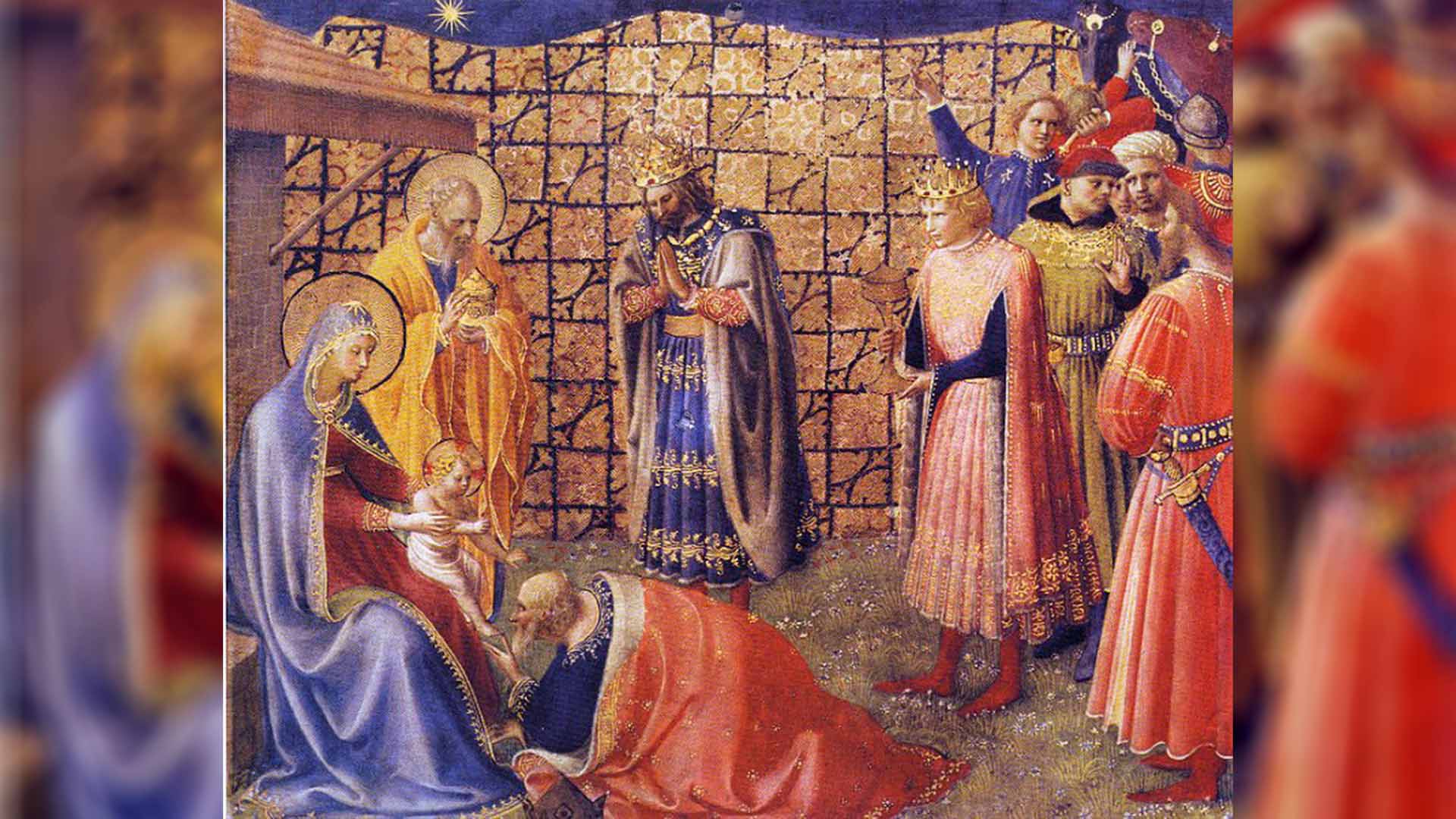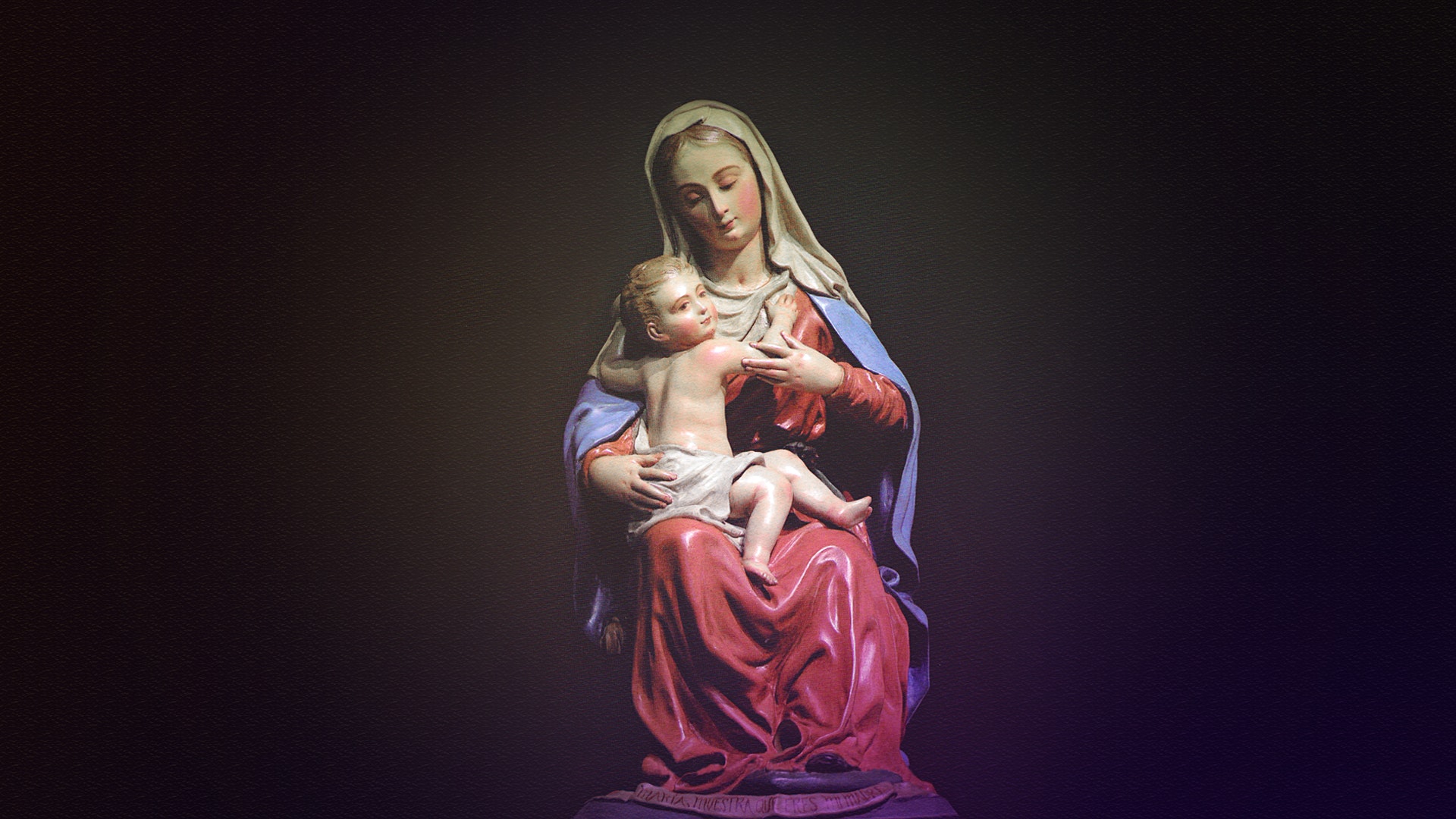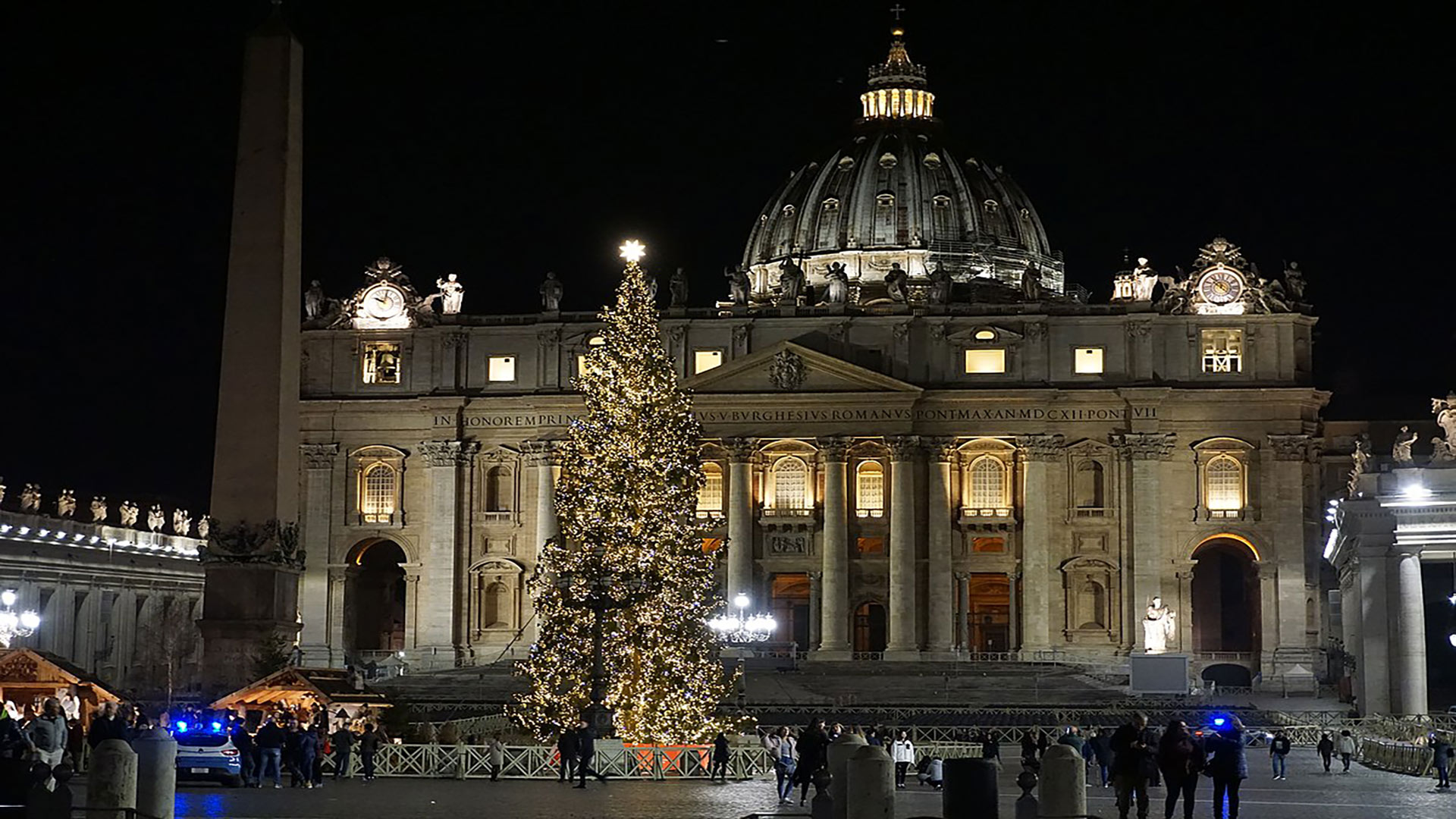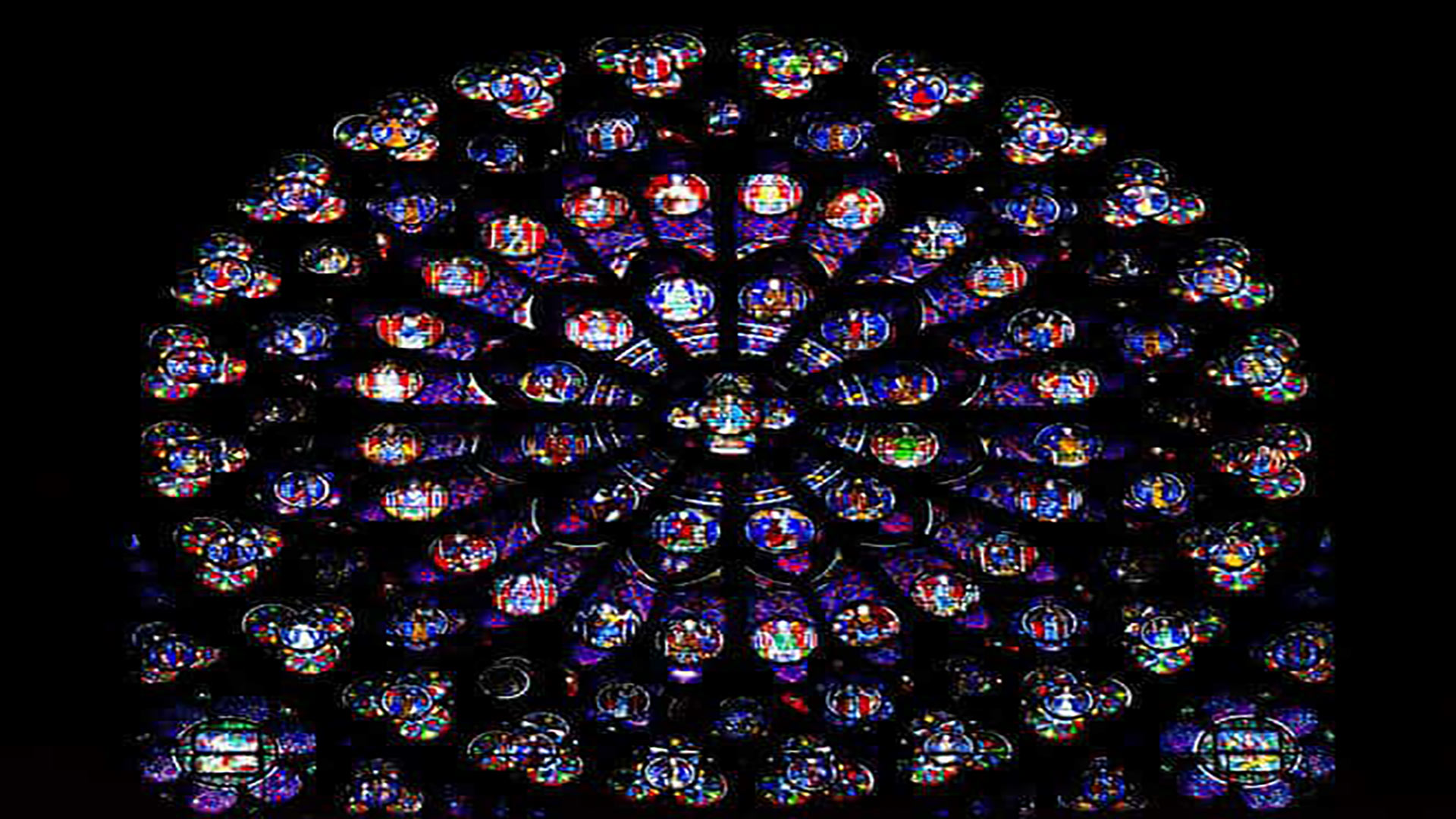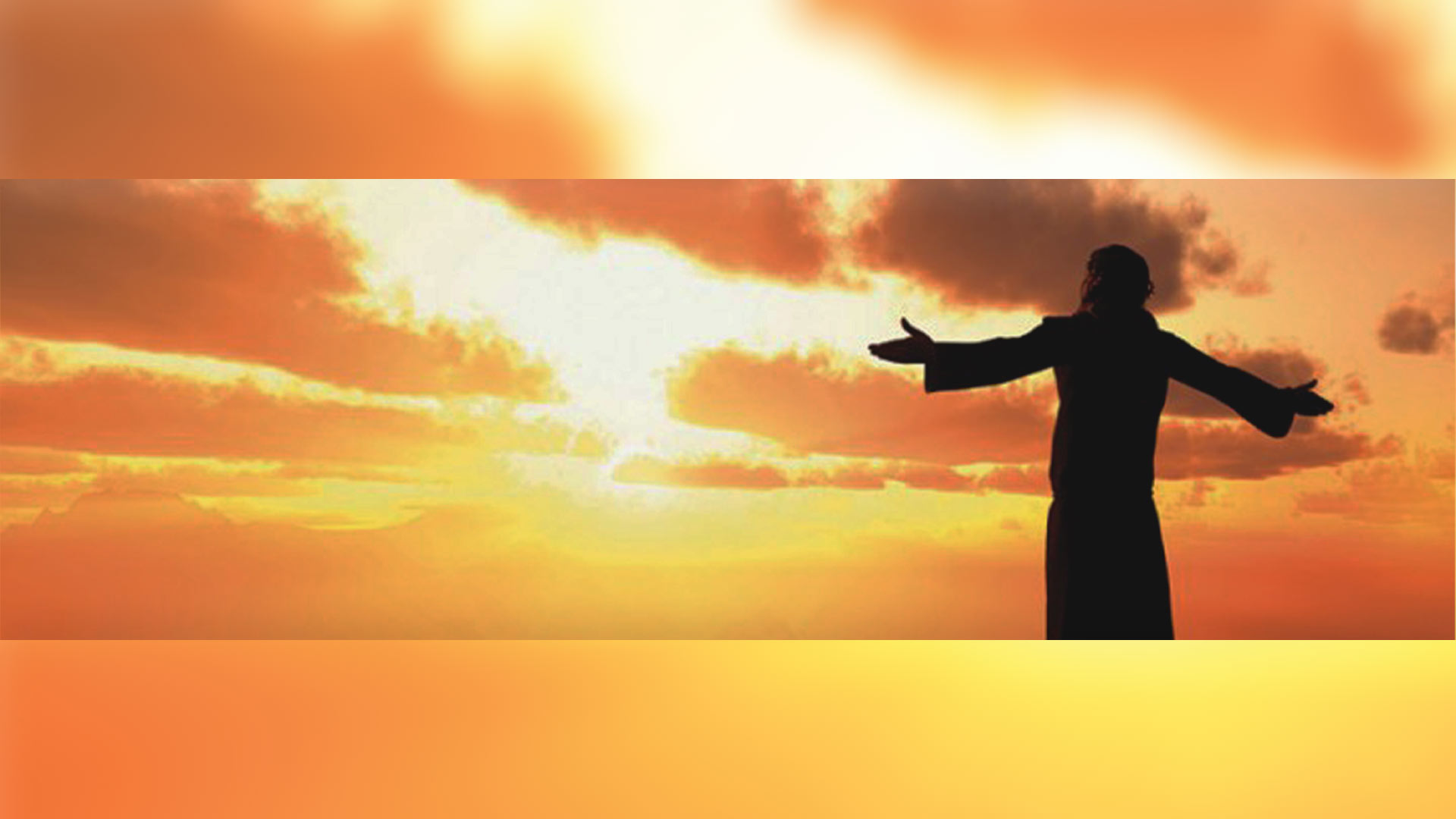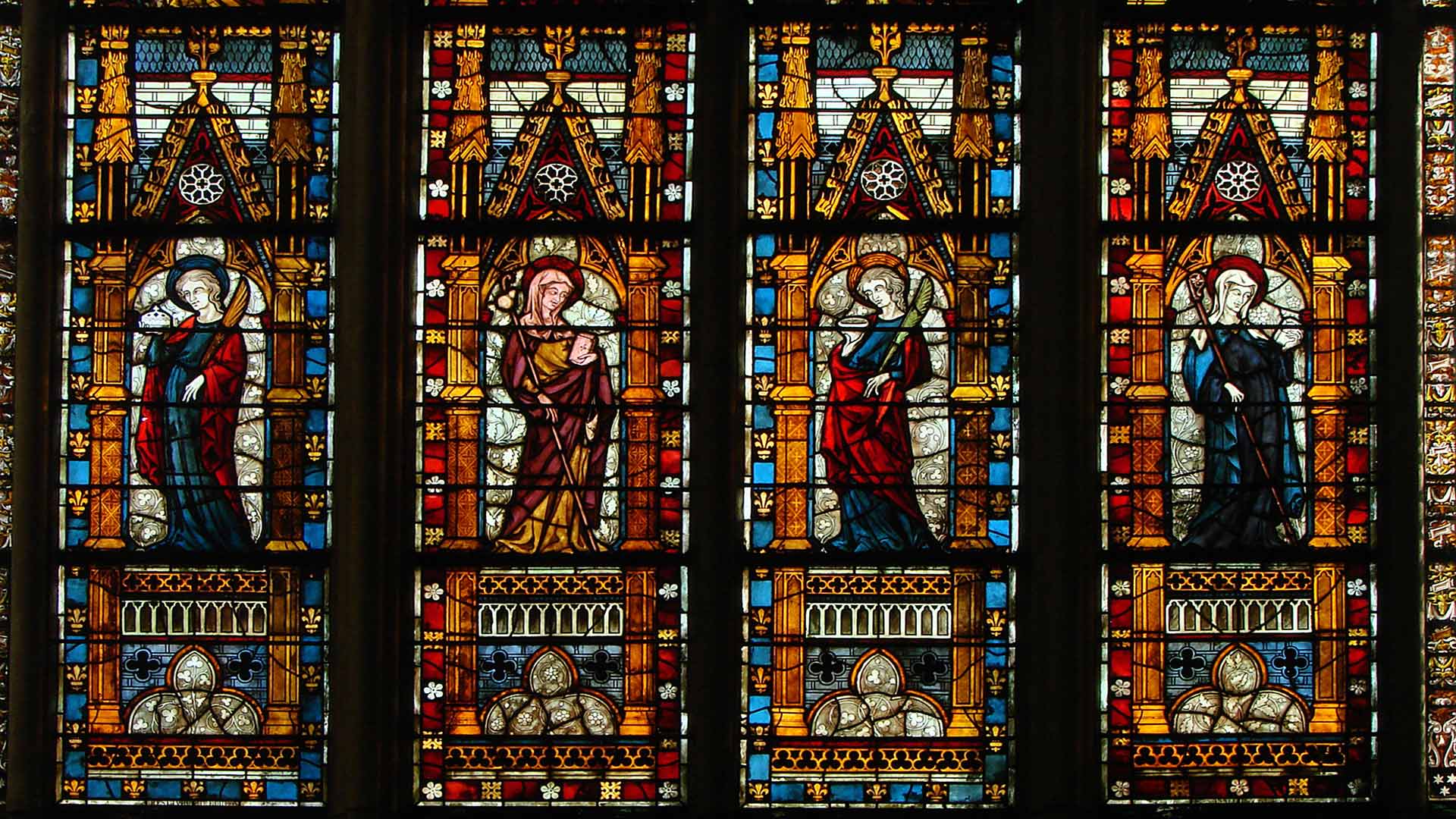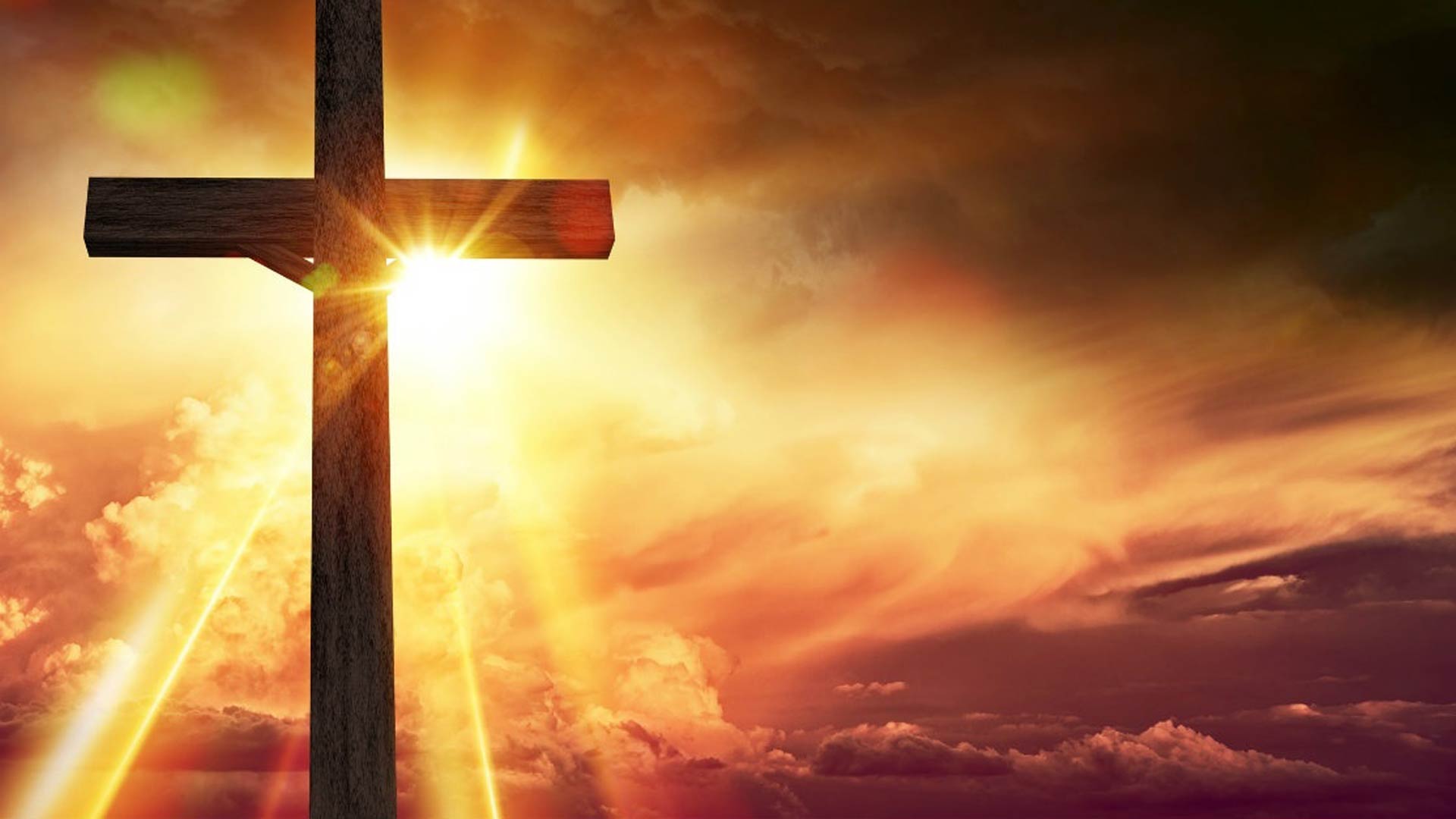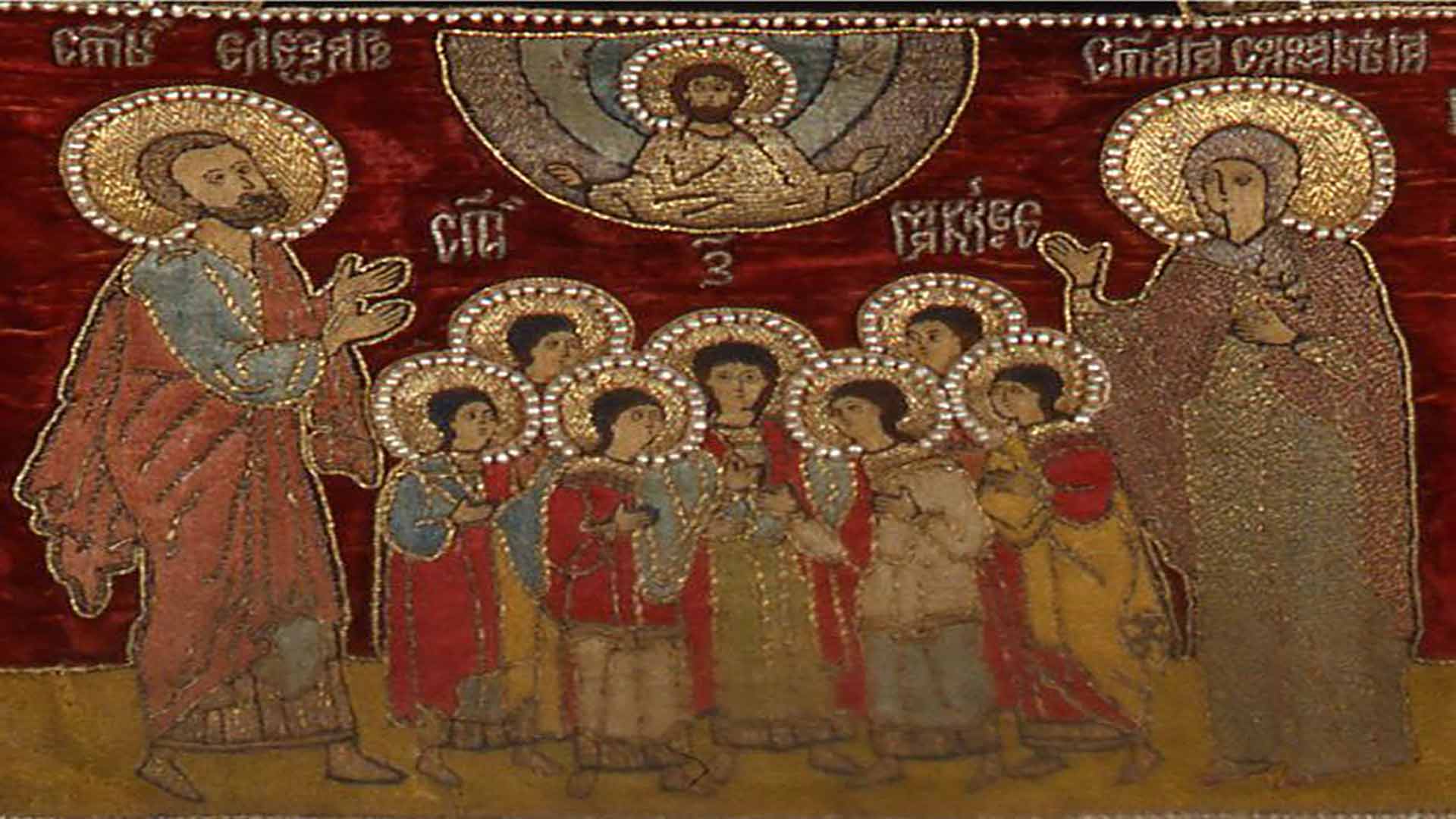Luminous Epiphany
In places where the Solemnity of the Epiphany has been moved from 6 January to the Sunday between 2 and 8 January (both days inclusive), the readings are quite different from those that celebrate it as originally set. Meanwhile, three parishes in the archdiocese of Goa celebrate the feast on the traditional day: the church of Reis Magos (The Magi), in Verem, Tiswadi; the chapel of Our Lady of Remédios (Cures) in Cuelim, Mormugão; and the church of Our Lady of Bethlehem, in Chandor, Salcete; where little boys play the Wise Men who followed a wondrous star to Bethlehem and paid homage to the Infant King.
The Epiphany (from the Greek ‘manifestation’) is a very ancient feast that predates the celebration of Christmas on 25 December. It was central to Christian life: whereas Jesus was born unsung, it was His manifestation to the Magi that illuminated the mystery of Christmas. The early Church combined that Visitation with the Nativity, the Baptism of Christ in the Jordan and the Wedding at Cana, as all those events pointed to Jesus as being the Son of God. Only centuries later, at the Council of Tours in 567, the Church set Christmas day on 25 December, the Epiphany on 6 January,[1] and named the twelve days between the two feasts as the Christmastide, with the latter solemnity marking the grand finale.
The day’s readings highlight an incomparably sublime event in the history of humankind: the manifestation of Jesus Christ. As Isaiah (60: 1-6) looks at battered Jerusalem he envisions it as the quintessential city that will be the Bride of the Lord. The city would manifest its glory, and the peoples of the world would flock to it with gifts, curiously, the same that the Magi would bring to the Babe of Bethlehem centuries later. Most importantly, by the end of times, “all nations shall fall prostrate before you, O Lord,” as sings the Psalm.
While the Gospel passage (Mt 2: 1-12) echoes Isaiah’s prophecy, it also quotes the chief priests and scribes as saying to king Herod that it was indeed written by the prophet (Micah 5: 1-2; 2 Sam 5: 2): “And you, O Bethlehem, in the land of Judah, are by no means least among the rulers of Judah; for from you shall come a ruler who will govern my people Israel.” On the one hand, it shows how well the authorities knew about the coming of a Messiah whom, sadly, they would reject. On the other hand, the reference to Bethlehem is significant, for Jesus would give up on the fortress Jerusalem and choose to be born in humble Bethlehem.
To be noted are Herod’s wily ways: was he not all sweetness who bade the Magi to let him know where the Babe lay, and almost in the same breath ordered the killing of infants under the age of two? A great lesson for us who are naïve vis-à-vis the world and its devious ways. Even while we enjoy the benefits of Christian civilisation, we fail to notice infiltrators bent on paganising the Mystical Body of Christ. Are we, Christians, alert and zealous enough, ready to stand up, speak up? Are we sufficiently imbued with the Good News to desist from entertaining bad news?
We have to emulate the Magi of yore and reject the Herods of the world. Those noble pilgrims from the Orient, astrologers and/or philosophers conversant with Hebraic messianic beliefs, were the first Gentiles to adore Jesus; they accepted Him while the authorities rejected Him – a pathetic drama that is still unfolding in our times. The gifts they offered were gold, in acknowledgement of the royalty of Jesus; frankincense, a reference to His divinity; and myrrh (not mentioned by Isaiah), pointing to the suffering humanity of Jesus.
Finally, St Paul (Eph 3: 2-3, 5-6) states that the Gentiles are indeed “fellow heirs, members of the same body, and partakers of the promise in Christ Jesus through the Gospel.” This is in stark contrast to the narrow and exclusive Jewish idea of Salvation. The chosen race had clearly failed God, so it is now the Church that is that chosen race, royal priesthood and holy nation. It makes you and me privileged bearers and proclaimers of His luminous message. Our task is to put the lamp on a stand, such that it gives light to all in the house! Instaurare omnia in Christo.
Banner: http://www.catholicstpeter.com/Epiphany/slides/adoration__of__the_magi-_fra_angelico.html
[1] The Church has spread out the rest of the feasts. This year, the Baptism of our Lord is celebrated on 9 January.
Under Two Holy Names
The New Year will surely be brought in with much fanfare the world over. The faithful will drive enthusiastically to church in their year’s best outfits to pray for a worthy year ahead. No doubt, it is the beginning of the civil year, but since Time belongs to God, we ought to honour it. Moreover, there is a Christian facet to it: it is the first day of the Gregorian calendar, called so as it was introduced by Pope Gregory XIII, way back in the year 1582, as a modification of, and replacement for, the Julian calendar whose algorithm had miscalculated the date of Easter.
Although the Gregorian calendar is now used in most parts of the world, some churches not affiliated to Rome still follow the Julian. Ukraine is a case in point. Only some days ago, in a bid to distance itself from the Russian Orthodox Church, Zelenksky’s country fell in line with the Church in the West and celebrated Christmas on 25 December, instead of 6 January.
Some of our faithful, however, may be unaware that 1 January is the Octave of Christmas, which, this year, has fallen on a Sunday. The first day of the civil year is also dedicated to the Blessed Virgin Mary, in celebration of her unique privilege and title as Mother of God. Accordingly, the readings dwell on the Mother of Jesus and on the Holy Name of Jesus.[1] The Feast highlights Mary's role in the economy of Salvation and helps us place our problems and concerns under her mantle. To complete the picture, the Catholic Church also celebrates the World Day of Peace[2] on the first day of the first month of the year.
Today's First Reading is from the Book of Numbers (6: 22-27), one of the five books (Pentateuch) dictated by God to Moses. Called so because it begins by listing the numbers of a census of the Hebrew people, the Book represents a march of God’s people across the desert wilderness between Egypt and Canaan. In the course of this march, the people gathered experiences that eventually impacted their future. God asked Moses to address Aaron because his brother was a worshipper of a Canaanite god and had helped the Israelites to build a Canaanite idol to worship. God’s command and Moses’ blessing here are a promise of peace for Israel, which was to be fully realised with the Birth of Our Lord Jesus Christ.
The mystery of the Incarnation was a fulfilment of a long wait; it was a manifestation of God’s benevolence and love for His supreme creation, humankind. His Son has liberated us from the old law and from sin; we have also secured His blessings, the highest one for Christians being the privilege to be called God’s children (rather than creatures). Of course, none of this would be possible without the Blessed Virgin Mary’s willing collaboration; she is thus, very naturally, the Mother of God and Mother of the Church, which is the Body of Christ on earth.
That is why St Paul in the Second Reading (Gal 4: 4-7) says: “God sent forth His Son born of woman, born under the law, to redeem those under the law, so that we might receive adoption as sons.” His words highlight the human side of the Son of God; that He became man first to save the Chosen People; that He was formed by the religion of his ancestors (to us, the Old Testament); and that in time He perfected the law, whereby all men and women of goodwill would be saved.
Finally, in the Gospel according to St Luke (2: 16-21), we see that the poor shepherds were the first ones to receive the Good News of Salvation. They met Mary and Joseph, with the Babe lying in a manger; they soon understood the magnificent Hymn of the Angels, Gloria in excelsis Deo et in terra pax hominibus bonae voluntatis, and became the first proclaimers of the Word made Flesh; and in Him, they were adopted as children of God.
That at the end of the Octave Jesus was circumcised and given His Holy Name, as preannounced by the Angel Gabriel to Mary, justifies the celebration of His Holy Name concurrently with Mary’s title as Mother of God; it also explains why 1 January was, way back from the 13th century, observed as Feast of the Circumcision of Jesus, with a Marian orientation predating it. This feast day was cancelled by Pope John XXIII’s General Roman Calendar of 1960 and simply called “Octave of the Nativity”.
Like Mary, we too need to keep all these things, ponder them in our hearts, and be ever more faithful to Holy Scripture and Tradition. The Blessed Virgin understood the full import of her Son’s words only after the Resurrection and Pentecost. We too ought to bide our time and, meanwhile, put His Holy Name upon our world, pray for God’s blessing, and discern our vocation. Above all, we ought to eschew sin, cease to be slaves of the world, and happily be sons and heirs by God’s grace.
Banner: https://daylesford.org/the-solemnity-of-mary/
---
[1] At other times, or say, when the Second Sunday of Christmas does not coincide with 1 January, there is a different set of readings. The feast of the Maternity of the Blessed Virgin Mary was first granted, on the petition of King José I of Portugal, to the dioceses of Portugal and to Brazil and Algeria, in 1751. By 1914, the feast was established in Portugal for celebration on 11 October and was extended to the entire Catholic Church by Pope Pius XI in 1931. The 1969 Revision of the liturgical year changed it to 1 January.
[2] Pope Paul VI established it in 1967, inspired by Pope John XXIII’s Encyclical Pacem in Terris (1963) and with reference to his own Populorum Progressio (1967).
The Three Christmas Masses
Did you know of the three Christmas Masses – Midnight; Dawn; Morning – each with its own liturgy?
The Midnight Mass is also called ‘the Angel's Mass’; the second, ‘the Shepherd's Mass’; and the third ‘King's Mass’.
Although all readings are on the theme of hope, light and salvation, each of the three Masses has its own focus and all of them worth reflecting upon.
The First Reading is always from the Book of Isaiah, who is the Prophet par excellence of the Messiah and the Good News. The Second Reading of the first two Masses comprise passages from St Paul’s Letter to Titus whereas the Morning Mass is taken from the Letter to the Hebrews. The Gospel of the first two Masses is from St Luke, while the daytime Mass reads from St John.
The Lectionary carries a note: “For pastoral reasons, one or other of the three Masses may be used at any hour.
MIDNIGHT MASS
Why a Mass at midnight? It is traditionally believed that Jesus was born at midnight. The physical darkness is a reminder of the spiritual darkness we are steeped in, a darkness that only Christ the Light of the World can dispel.
The First Reading (Is 9: 2-4, 6-7) states: “The people who walked in darkness have seen a great light.” The prophecy is specific to Israel, whose king, Ahaz, had entered into alliances with kings instead of with the King of Kings. Isaiah announced to the hapless nation that the royal line would produce a descendant that would save them. Ahaz’s son Ezekiah was indeed a righteous king, but the adjectives describing him – “Wonderful Counsellor, Mighty God, Everlasting Father, Prince of Peace” – are infinitely more apt for Jesus Christ the Messiah, a descendant of the Royal House of David.
The Gospel account (Lk 2: 1-14) is about the humble birth of Our Lord, proof enough that the His government would be of the spiritual realm. That “there was no place for them in the inn” tells us of how the rich and mighty would reject Him, as they still do. No wonder, the poor shepherds were the first to be invited to visit the Divine Babe in Bethlehem.
After the Fall, there was a chasm between God and man. The Son of God came to overcome that barrier, yet we vacillate when it comes to things divine. Nowadays, when under the guise of secularism, the world is steeped in irreligion and passions, let us heed St Paul’s advice to Titus (2: 11-14): “… live sober, upright and godly lives in this world, awaiting our blessed hope, the appearing of the glory of our great God and Saviour Jesus Christ.”
In this dark world, then, Christmas comes with a message of light and hope for humankind.
DAWN MASS
The Mass at dawn commemorates the shepherds’ early and eager visit to adore the Lord in the manger. As natural light increases at dawn, those who believe in the Lord are blessed with His gift of light.
In the First Reading (Is 62: 11-12, Isaiah announces the good news of salvation to the daughter of Zion, that is, Jerusalem, or the Jewish people. Or, as the luminous Psalm says, “This day a new light will shine upon the earth: the Lord is born to us.” This light will shine on the just, and joy will belong to the upright of heart.
The Gospel (Lk 2: 15-20) tells us that the lowly – represented here by the shepherds, who were considered the scum of the earth – are the upright of heart: they see with eyes of faith, and they glorify and praise God. Like little children, it is the lowly who are apt to inherit the kingdom of God.
Yet, we are never worthy. As St Paul says to Titus (3: 4-7): “When the goodness and loving kindness of God our Saviour appeared, He saved us, not because of deeds done by us in righteousness, but in virtue of his own mercy.” Our baptism, then, is the dawn of a new life of the spirit.
DAY MASS
The third and final Christmas Mass is celebrated in broad daylight, symbolising the promised Son of God Who has been revealed to the world. The Gospel reading is a standing invitation to all nations to worship the new-born King of Kings, hence the name ‘King's Mass’.
The First Reading (Is 52: 7-10) announces the Good News to Israel, and eventually, to “all the nations; and all the ends of the earth shall see the salvation of the world.” How happy we should consider ourselves to be included in that number, thanks to the Apostles who visited our subcontinent way back in the first century (Kerala, Tamil Nadu) and later, other proclaimers of the Word, from the sixteenth century onwards (Goa and surrounding areas).
The Gospel (Jn 1: 1-18) strikes a somber note, that is, nevertheless, thought-provoking: “The true light that enlightens every man was coming into the world, He was in the world, and the world was made through Him, yet the world knew him not.”
How true that is of our world, two millennia after the Birth of Jesus. We know Him not, and those who are privileged to know, care not! “He came to his own home, and His own received Him not.” Jesus came to save Israel, and they rejected Him; He wants us to announce the Good News to the world, and what do we do?
How can we despise God Who has stretched out His hand to humankind?
The Second Reading (Heb 1: 1-6) emphasizes how “in many and various ways God spoke of old to our fathers by the prophets; but in these last days He has spoken to us by a Son… He reflects the glory of God and bears the very stamp of his nature, upholding the universe by his Word of power.” Let us acknowledge Him duly and gratefully.
This Christmas let us reflect on the power and glory of God and how we are privileged to inherit His light on earth and everlasting life in Heaven. Let us rise above matter and embrace the spirit; let us look beyond the physical and gaze at the supernatural; let us put the pettiness of the world behind us and live like the angels on high. Thanks to the Holy Catholic Church, the ineffable mystery of Christmas stays with us through the year.
Awaiting that Wondrous Birth
“Behold, a young woman shall conceive, and bear a son, and shall call his name Emmanuel.” Today, is there a clearer sign that Jesus was the One referred to in these words of the Prophet Isaiah? Some versions even translate ‘young woman’ as ‘virgin’. Who other than Jesus can lay claim to virgin birth? What woman other than Mary ever gave birth as a virgin? Was it not crystal clear that this was the Messiah that Israel had long been waiting for?
In the First Reading (Is 7: 10-14), Isaiah said those reassuring words to king Ahaz, a young and evil king of Judah (731 BC to 715 BC) responsible for introducing idol worship and sacrilege against the temple of the Lord (2 Kings 16; 2 Chron 28). The Prophet wished to win him back to the Lord by announcing the coming of a son to be named Ezekiah. He would save Israel but the king despaired of God’s help, put his trust in kingly alliances, and eventually caused the downfall of the kingdom.
More importantly, Isaiah’s words prefigured Jesus Christ, Saviour of the World, and marked the beginning of messianism.
Alas, how many Ahazes are there in our midst and, sadly so, within the Church itself: haven't their actions facilitated the entry of the “smoke of Satan” through some crack (as pointed out by a Pope in the 1960s)? We for our part have to “let the Lord enter! He is the king of glory” – as the Psalm sings. Or, as St Paul puts it in the Second Reading (Rom 1: 1-7), we are “called to belong to Jesus Christ”. This is an unparalleled privilege, a supreme honour, yet how reluctantly we wear the badge! Even in this blessed season of Advent, while the birth of our Saviour is imminent, we find ourselves so engrossed in worldly things that we forego the Saviour!
It is absolutely disastrous that Christmas is sometimes held with pomp and splendour and that Christ becomes only a pretext for a mundane celebration. Rather, we should have let our hearts be moved by the Gospel (Mt 1: 18-24) that dwells on the wondrous Birth of Our Lord! It may be noted that Mary had only been betrothed to Joseph when she received the divine call to be the Mother of Jesus. And how! Even before they came together, she was with child, through no fault of a man (as profane thinking may have us believe) but rather through God’s designs. But even though it happened in fulfilment of the Isaian prophecy it was not without a trace of suspicion....
Again, if we fast-forward to our times, we may be tempted to irreverently think of Mary as an unwed mother. But it was not so. Betrothal in those days meant that Mary and Joseph were husband and wife in all legal and religious aspects, except that of actual cohabitation. Meanwhile, God in His infinite wisdom provided for Jesus to be born before the couple had come together, thus to let it be known that He was “child of the Holy Spirit”. Think of how the claim of virgin birth would have been suspect had Jesus been born after the couple’s cohabitation. No doubt, Joseph had prior reservations (and even wanted to “quietly send her away”) but eventually he believed the Angel’s words – “do not fear to take Mary your wife, for that which is conceived in her is of the Holy Spirit; she will bear a son, and you shall call his name Jesus” – much unlike king Ahaz, his ancestor of the House of David, who became a victim of his own scepticism.
Thanks to Joseph the Silent Saint and to Mary conceived without Original Sin, we are blessed to have God become Man in order to save us. Earth never had anything more wondrous to show than the Birth of Our Lord and Saviour. On this Laetere Sunday, which focusses on the internal joy of anticipation, we enter the last leg of the Advent journey. Let us await the divine event that is to come, like people with clean hands and pure heart, who desire not worthless things (cf. Ps 23: 4), and let us wholeheartedly collaborate in God’s salvific plans.
Joy beyond compare
If celebrating the halfway mark helps boost our spirits, Gaudete Sunday does just that: lets us rejoice not only because Christmas is near but also because we have persevered in preparing for the Lord’s coming. This Sunday draws its name from the introit of the Latin Missal which reads: “Gaudete in Domino semper”, meaning “Rejoice in the Lord always.” Besides the pink or rose of the candle and of the priestly vestments symbolising joy, the readings, imbued as they are with a supernatural joy, help us bide our time to contemplate the Babe of Bethlehem.
But then, can we really rejoice with war, disease, corruption, climate change, suffering, and unrest all about us! Or will that rejoicing be possible only in the messianic times? In the First Reading (35: 1-6a, 10) Isaiah speaks of the time when nature will rejoice and sing at the coming of the Lord of Creation with strength, to save those who had longed for Him and suffered for the sake of His Holy Name.
On the other hand, we too can experience joy in this valley of tears. It is not a superficial joy brought in with festoons, but a supernatural joy that comes with faith. This joy is not a mere sensation but an act of the will – not dependent on what we feel but on what we consciously wish to feel. Truly, Christian joy is not contingent on the ups and downs of daily life but guided by our conviction that God moves and controls all history. By His Incarnation we know that He is there for us and saves us: easily a cause for rejoicing!
In the Second Reading, taken from the Letter of St James (5: 7-10), the Apostle[1] addresses Christians of Jewish origin. It is more of a moral rather than doctrinal teaching. He preaches patience, akin to that of a farmer awaiting “the precious fruit of the earth”, or, we may safely add, a woman expecting a baby. His wise counsel: “establish your hearts”; “do not grumble against one another”; “take the prophets who spoke in the name of the Lord” as role models. Simple yet effective advice. If we conduct ourselves in keeping with our faith, cultivating prudence and resignation, soon we will be on the highroad to holy joy.
Of joy we have a harbinger in St John the Baptist, one of the many prophets who spoke in the name of the Lord. In the Gospel (Mt 11: 2-11), Jesus says that John is “more than a prophet. This is he of whom it is written, ‘Behold, I send my messenger before Thy face, who shall prepare Thy way before Thee.’ Yet, we find that the Forerunner of Christ is a little unsure: he demands to know if Jesus is indeed the Messiah that they were waiting for (we must take a leaf from him in our age of false messiahs, mustn’t we?) That happened partly because John had expected Jesus to save Israel in the temporal realm. For his part, the Messiah defined his scope of action, directing John’s gaze to how He had fulfilled the Isaian prophecy, by giving sight to the blind and letting the lame walk, by cleansing the lepers and curing the deaf, and miracle of miracles, by raising the dead!
Those wonders were there for everyone to see, yet only the poor took no offence at Him. The rest – then, as now – were spoiled children that found no place for the Lord; they went on from smugness to spiritual blindness and hard-heartedness. They had failed to appreciate that both Isaiah and John pointed to the same Messiah. Quite an eye-opener for us, who are dutybound to bear witness to God’s mighty works and proclaim them from the rooftops; evangelise, prophesy, and be the salt and light of the world.
But alas, the ungodliness of the contemporary world falsely equates joy with feasting. Paradoxical though it may seem, supernatural joy calls for fasting, besides a life of prayer, virtue and penance. Only then can we hope to rejoice like the little children, who will inherit the kingdom of God; or, like the shepherds, who were the first hearers of the Good News while they kept watch over their flocks by night. Thanks to their proverbial joy, the third candle of Advent is called Shepherds’ Candle. And as we light it today, may we receive the grace to become progressively hopeful, repentant, joyful, and better prepared to meet the Lord.
---
[1] “Brother [cousin] of the Lord” (Gal 1: 19), a man of great reputation but barely mentioned in the Gospel. He began to believe in Jesus only after the Resurrection and a few years after Pentecost was a leader responsible for Christian communities having a majority of Jews in Palestine, Syria and Cilicia (present-day Turkey) (cf. Acts 15: 13-29) Of all the apostles, he was the most attached to Jewish traditions – the extreme opposite of St Paul.
A story of great promise
“You have made us for yourself, O Lord, and our heart is restless until it rests in you,” says St Augustine in his famous Confessions. Thankfully, as we enter the second week of Advent, the Prince of Peace gives us graces to achieve peace of mind and heart.
When the Lord touches us, life changes for the better. So it was with Jesse, a sheep farmer in Bethlehem, whose youngest son David received God’s call to be the king of Israel. David’s reign and that of his son Solomon formed a golden era, but soon thereafter Israel began to produce godless kings.
In those dark hours, Isaiah’s prophecy, heard in today's First Reading (Is 11: 1-10), was heart-warming: “There shall come forth a shoot from the stump of Jesse, and a branch shall grow out of his roots”. That regal shoot would be wise and clever like Solomon; prudent and strong like David; knowledgeable and respectful like Moses and the Patriarchs.
Clearly, Isaiah’s words referred to the Messiah. Born seven centuries later, Jesus was that “root of Jesse” who would provide an ensign to the peoples, both Gentiles and pagans. The Jews, long awaiting a Messiah, did not acknowledge the Carpenter’s Son; it was their loss and our gain, for now we can hope for the Lord’s Second Coming, when, “Justice shall flourish and peace till the moon fails.” (Ps 71: 7-8) And “justice” (meaning, sanctity or victory over sin) will bring about peace.
The Gospel of St Matthew (3: 1-12) takes us back to Isaiah who had pointed to “the voice of one crying in the wilderness: 'Prepare the way of the Lord, make His paths straight'” – unmistakably the future John the Baptist! His message is as relevant today as it was when Jewish high society’s observance of religious precepts was mere tokenism – or façadism. They were formalist and materialist, just as the world today is consumerist to boot.
What a far cry from the austere life of the Baptiser; like the prophets of old, especially St Elijah (cf. 2 Kings 1:8), he wore a garment of camel's hair, strapped a leather belt around his waist, and survived on locusts and wild honey. His mission was to serve: by announcing the Good News, baptising[1] the repentant, and denouncing the wicked. He called the bluff of the Pharisees and the Sadducees[2] – that “brood of vipers” – demanding that they “bear fruit that befits repentance” rather than bask in the glory of Abraham.
The promise of salvation continues through the Church. St Paul (Rom 15: 4-9) was convinced that “whatever was written in former days was written for our instruction, that by steadfastness and by the encouragement of the Scriptures we might have hope.” Jesus followed the law even while he sought to perfect it. Circumcision is a case in point: The act, which was at the heart of God’s covenant with Abraham, was meant to retrench and restrain the animal man as it removed a part of his body.[3] Yes, Christians do without it, for, as St Thomas of Aquinas noted, circumcision was only “a figure of baptism”— meaning to say, baptism has superseded it!
Salvation is a long story of great promise! But St John the Baptist does not fail to caution that a time will come (the Final Judgement) when “every tree that does not bear good fruit will be cut down and thrown into the fire”. When the Lord comes again, He will divide the wheat from the chaff; He will “gather His wheat into the granary, but the chaff He will burn with unquenchable fire."
Two millennia ago, St John the Baptist was privileged to see the incomparable First Coming of Jesus; repentance is fundamental for those of us who wish to witness His glorious Second Coming and be part of that story of great promise.
---
[1] St John himself points to how Jesus would baptise differently: “I am baptizing you with water, for repentance . . . He will baptize you with the Holy Spirit and fire.” (Mt 3:11).
[2] The Pharisees were zealous observers of the law and of oral tradition; the Sadducees hailed from priestly families and were politically connected, despising tradition and sticking to the written law; a third group comprised the Scribes, who were doctors of the law that interpreted the Torah.
[3] Cf. https://www.catholic.com/encyclopedia/circumcision
Watchful and Fearless
Today is the first of the four Advent Sundays and the beginning of a new liturgical cycle (Year A for Sunday Mass readings). They focus on waiting in hope for the Lord’s coming, an act symbolised by a purple candle traditionally placed in the evergreen wreath.
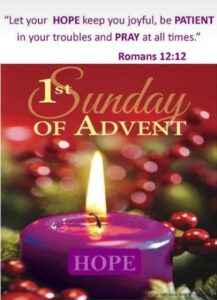
In the First Reading (Is 2: 1-5), the Prophet Isaiah glorifies Zion, the mountain on which stands God’s temple. He envisions peoples from across the world streaming to adore God and learn his law. A proper understanding of the Word of God will unite the peoples and inaugurate a period of peace, in which hatred will turn into esteem and armaments into instruments of work and welfare. In short, it will be the ‘City of God’ that St Augustine of Hippo speaks of in his De Civitate Dei, expounding a Christian view of society and history.
The spread of Christianity across the world was a step in that direction. As Pope Leo XIII points out in Aeterni Patris (1879), “the only-begotten Son of the Eternal Father, who came on earth to bring salvation and the light of divine wisdom to men […] commanded the Apostles to go and teach all nations, and left the Church which He had founded to be the common and supreme teacher of the peoples. For men whom the truth had set free were to be preserved by the truth; nor would the fruits of heavenly doctrines by which salvation comes to men have long remained had not the Lord Christ appointed an unfailing teaching authority to train the minds to faith.” Only a Church faithful to the Lord’s commands can “teach religion and contend forever against errors”,[1] thereby showing us the way to the new and eternal Jerusalem.
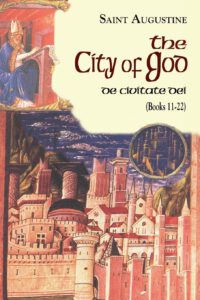
Christ’s Incarnation was a watershed in the history of humankind. From then on, we Christians have had the opportunity to learn the true law and work towards our salvation. Urging Christians to achieve this true liberation, by overcoming the darkness of sin, St Paul puts it very vividly to the Romans (13: 11-14): “You know what hour it is, how it is full time now for you to wake from sleep.” Then, he issues us a clarion call to “cast off the works of darkness, and put on the armour of light […] to put on the Lord Jesus Christ, and make no provision for the flesh to gratify its desires.” Which is a caution against falling head over heels for the evanescent world we live in.
How many of us respond positively to the Lord’s standing invitation? Isn’t much of what is going on in the world today an affront to the Creator? God gives His people enough rope, and some hang themselves! Few realise that it is no use gaining the whole world and losing one’s soul; similarly, they fail to see that life is terribly uncertain, and so is the time when the Lord will come again. The covid-19 pandemic was no doubt an eye-opener, but the world is back to its waywardness. To quote a nineteenth-century advocate of the Irish Catholics, “the condition upon which God hath given liberty to man is eternal vigilance; which condition if he break, servitude is at once the consequence of his crime and the punishment of his guilt.”[2]
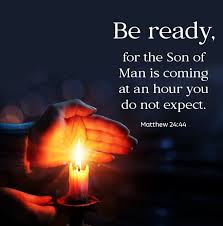
Isn’t servitude to sin rampant? How long do we wish to continue in the depths of the pit! We must, therefore, work hard to not let sin gain ascendancy in our individual and societal life; we must not only make a collective effort towards living a life pleasing to God but also not hesitate to swim against the tide of opinion when our spiritual good so requires. Finally, we must heed St Matthew’s counsel (24: 37-44) to “be ready: for the Son of Man is coming at an hour you do not expect.” Of course, if we remain watchful, there is nothing to fear; on the contrary, eternal happiness will be the reward that we will receive.
[1] https://www.vatican.va/content/leo-xiii/en/encyclicals/documents/hf_l-xiii_enc_04081879_aeterni-patris.html
[2] John Philpot Curran (1750-1817)
Thy Kingdom Come!
Today is the culmination of the liturgical year, a special day to reaffirm our faith and trust in Our Lord Jesus Christ as the King of the Universe. This Solemnity, which, according to the older liturgical calendar, used to be observed on the last Sunday of the month of October, preceding the Feast of All Saints, is now held on the Sunday immediately prior to the first Sunday of Advent.
The day’s readings are a clear endorsement of the Kingship of Our Lord. In the background to the First Reading (2 Sam 5: 1-3) lies the story of Saul, the first king of Israel, who lost to the Philistines, an enemy tribe. Given his ineptitude, God guided the Prophet Samuel to David, a humble but talented musician, who was secretly anointed king. While Saul was still living, David settled in Hebron where he was accepted by the tribe of the southern kingdom of Judah and reigned as their king for seven years.
After Saul died, the northern tribes who had been under Saul came to David at Hebron and anointed him King of all of Israel. Hebron, a Palestinian city thirty kilometres from Bethlehem, is one of the oldest cities in the Levant (a geographical area comprising Lebanon, Jordan, Palestine, Israel and Syria) and now in the focus of the Israeli-Palestinian conflict.
David reigned for forty years, from his capital Jerusalem, until he died at 70 years of age. He had already chosen his son Solomon for his successor, after whose death Israel was no longer a united kingdom. As for David, he is still honoured as an ideal king and the earthly forefather of our Lord and Saviour Jesus Christ, who by His Cross willed to unite all the peoples of the world.
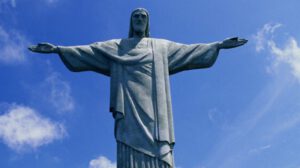
Equally apt for the great Feast of the Kingship of Christ is that passage of St. Paul’s Epistle (Col. 1: 11-20) that reminds us Christians that God has “qualified us to share in the inheritance of the saints in light” and “transferred us to the kingdom of His beloved Son, in whom we have redemption, the forgiveness of our sins.” Jesus is the Alpha and the Omega, through whom and for whom all things were created, “whether thrones or dominions or principalities or authorities”. Jesus made peace “by the blood of his cross”, and “in Him all things hold together.”
The Gospel text (Lk 23: 35-43) points to the striking contrast between Our Lord’s Passion and His final Victory. He died not because he deserved to die; He chose to die as a sacrificial lamb for our salvation. Not realising this, the soldiers mocked at him, saying, “If you are the King of the Jews, save yourself!” Jesus had clarified that His kingdom was not of this earth; and although the inscription ‘Iesus Nazarenus Rex Iudaeorum’ (‘Jesus of Nazareth, King of the Jews’) was meant to be ironic, it went down in history as the real truth. It reflected the conviction that Jesus was indeed the Messiah that they were waiting for – although this school of thought was anathema to the establishment.
There is no doubt, however, that both Jewish tradition and public opinion had unwittingly endorsed the true and complete kingly identity of Jesus. But what did He mean by ‘Kingdom’, as in the remarkable words ‘Thy Kingdom come’ from the Lord’s Prayer? In his book Jesus of Nazareth, Pope Emeritus Benedict XVI writes: “The Kingdom is not a thing, it is not a geographical dominion like worldly kingdoms. It is a person; it is He.”
The Lord’s Kingdom is indeed a spiritual kingdom that has the minds and hearts of the whole of humankind for its domain; but this mystical dimension has its consequence in civil society too. In fact, it is here that we Christians must practise the Beatitudes to the fullest extent, and proclaim the Gospel to the ends of the world, ensuring that our earthly journey becomes a fulfilment of God’s will – the will of His Son, Jesus Christ, King and Lord of the Universe.
Lead, kindly Light!
Eschatological texts on yet another Sunday correlate the end of the liturgical year with the end of the world. There is now only one Sunday left between today and the joy of Advent beginning on 27 November. Meanwhile, to enable us to sing with full-throated ease the victory song of Christ the King on 20 November, His Feast, the Church invites us to first imbibe the Biblical teachings about the end times.
The First Reading is taken from the Book of Malachi (3: 19-20). The debate on whether or not Malachi is really the author’s name (in Hebrew, it simply means, "my messenger") pales into insignificance when we note the core of the text: a chastisement of the Israelites, which, unfortunately, included the priests, too, in post-exilic Jerusalem for their lax religious and social conduct. Today’s passage is brief but its message loud and clear. It dwells on the day of Judgment, when the wicked ones will, like the stubble, be devoured by the flames; whereas, for those who fear the Lord, “the sun of righteousness shall rise, with healing in its wings.” No two ways about it.

Malachi is the last of the eighteen prophetic books and also the last book of the Old Testament. In pointing to the day of the Lord’s coming, it carries a message of hope. Some five hundred years later, our Divine Lord – “the sun of righteousness” – came into the world to address people of goodwill. Thus, the Book of Malachi builds a bridge with the New Testament; and given the absence of any other prophetic record in the intertestamental period, it assumes even greater significance.
The Second Reading, from St Paul’s Second Letter to the Thessalonians (3: 7-12), addresses the community’s slothful ones. He urges both pastor and pauper to eat their food by the sweat of their brow. Whereas the Apostle of the Gentiles was very concerned about setting a good example himself, his followers had begun taking things for granted and even lived off the charity of fellow Christians.
Does that mean anything to the twenty-first century Christian community? If we have begun to look like wayward children basking in past glory while letting the present slip through our fingers, we are in for trouble. It is high time we pondered on whether we, leaders and followers, parents and children, priests and laity, are exerting ourselves enough to ensure that tomorrow will belong to us! Let us get our act together, that His Kingdom comes here on earth and thereafter we deserve to inherit Heaven. No gains without pains!
In the Gospel (Lk 21: 5-19) we hear the words that Jesus spoke to His Apostles when His Passion and Death was at hand. Just in case they had thought that a life in the Lord’s service would be a cakewalk, Jesus forewarns them that proclaimers of the Good News might in fact be assaulted, convicted, jailed, or even killed. In other words, following Christ involves renunciation and suffering; we are called to be committed, to take an unambiguous position, to not run with the hare and hunt with the hounds! It’s a little cross we willingly bear, as an infinitesimal share in the mighty Cross that Our Lord and Master carried to Calvary.
Through all of it, we must fix our gaze on His Divine Face and not on the façade of the temple “adorned with noble stones and offerings”. Vanities will meet their nemesis: “there shall not be left here one stone upon another that will not be thrown down.” Precisely when this shall come to pass is not clear as crystal, yet the secret of our holy success will depend on our sticking to the Lord through thick and thin. Behold the Lord’s words of caution: “Take heed that you are not led astray; for many will come in my name, saying, ‘I am he!’ and ‘The time is at hand!’ Do not go after them. And when you hear of wars and tumults, do not be terrified: for this must first take place, but the end will not be at once.”

Jesus is our Light and our Life! Lead, kindly Light, even as we witness nations rising against nations; earthquakes and famines, floods and pestilences devastating the earth. When we watch the Light amid the encircling gloom, we will not be afraid. We can be sure that we will never be left to the designs of the evil one, for when we are with the Lord – the Lord is with us! – we have nothing to fear! You must not draw back when, horror of horrors, “you will be delivered up even by parents and brothers and kinsmen and friends, and some of you they will put to death.” And, miracle of miracles, you and I need not even “meditate beforehand how to answer; for I will give you a mouth and wisdom, which none of your adversaries will be able to withstand or contradict,” says the Lord.
As the liturgical year draws to a close, it is highly recommended that we take stock of our spiritual baggage and ponder on the inescapable fact of our individual and collective end, praying thus with Cardinal Newman:
[A]long the narrow, rugged path,
Thyself hast trod,
Lead, Saviour, lead me home in childlike faith,
Home to my God.
To rest forever after earthly strife
In the calm light of everlasting life.
Steadfast in Christ
When the Greek emperors ruling over Palestine wished to impose their gods on Israel, monotheistic Israel vehemently rejected their overtures. The First Reading’s (2 Macc 7: 1-2, 9-14) description of the bid to convert seven brothers (now the Saints Maccabees) and their mother (a foreshadowing of our Blessed Mother) [1] to idolatry is pregnant with meaning. One of the siblings says in no uncertain terms that they are “ready to die rather than transgress the laws of our fathers.” If the earthly king kills them, the King of the Universe will raise them up to an “everlasting renewal of life.” They regard sufferings as nothing because they regard God as their everything; and they do so with the hope of their resurrection to life!
How many of us do readily sacrifice vain human bonds and put God first in our life? On the contrary, we often take God for granted while eager to satisfy fellow humans, especially if there are material benefits at stake. We readily bend over backwards for fear of displeasing or antagonising friends and relatives, and glibly say ‘God will understand’. Such opportunism is most displeasing to the Lord for, taking Him for granted could eventually lead to denying Him, Jesus Christ, the God of Life and Resurrection.
On the other hand, believing in the living God involves a wholehearted acceptance of the revealed message. The Gospel (Lk 20: 27-38) underlines that “He is not God of the dead, but of the living; for all live to Him.” Even this may remain as words, words, mere words, if we do not open our minds and hearts to Him. In the world today, instead of subjecting ourselves to God and His teaching, alas, how many bend before human authority, misleading though their teachings may be; and how casually they do so – as though God does not exist!
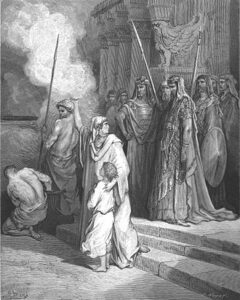
While Maccabees speaks of the apparent riddle of the seven brothers, the Sadducees mentioned in the Gospel present a teaser. A woman marries seven brothers in succession and is childless: whose wife will she be in Heaven? It is to be noted that, as against the Scribes and the Pharisees, the Sadducees (who belonged to the higher echelons of the Jewish priesthood) did not believe in the resurrection; hence their question. But then, Jesus takes the opportunity to educate them on the resurrection and eternal life: they are both for real, yet it is not a material reality like the one lived on earth; the resurrected will be akin to angels!
Resurrection and Eternal Life may well be among the most difficult realities for the human mind to accept. In our positivist age, many wish to be known as men and women of science rather than of faith. In fact, there is no antagonism between religion and science, but there are many who wish to drive a wedge between the two. To every doubting Thomas, therefore, St Paul’s prayer in 2 Thess 2: 16 – 3: 5 is: “May the Lord direct your hearts to the love of God and to the steadfastness of Christ.”
[1] Although unnamed in 2 Maccabees, the mother is known variously as Hannah, Miriam, Solomonia, and Shmouni in the Catholic Church.
Banner: The Holy Seven Maccabees, their mother Solomonia, and their teacher Eleazar (Russian veil icon, 1525)
